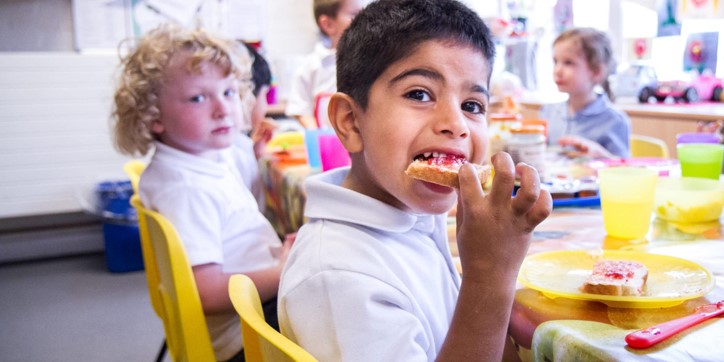Author Sarah Pike | Early Years Consult PSED | Education Effectiveness Early Years Service
In Cornwall we are renowned for our stunning scenery, our tasty pasties and our fascinating mining heritage, making us a county which is a very popular holiday destination. We often feature on the television. However, our rurality, whilst great for a holiday, can be a very isolating place for families who live here, where there are high levels of disadvantage in many areas.
The Cornwall Council business plan is “Cornwall - where everyone can start well, live well and age well”. Underpinning this are four priority outcomes, the key of which for our Early Years Service is “Cornwall – a brilliant place to be a child and grow up”. We are fully committed to ensuring that every child, including those who are at risk of disadvantage, has the best possible start for life.
In recent news there have been headlines about the national picture of children receiving fixed term suspensions from school by the age of 5. According to government data for the academic year 2021 – 22, a total of 11,695 children aged five and under received fixed term suspensions (source https://www.theguardian.com/education/2023/oct/07/covid-generation-under-fives-excluded-from-schools-in-england). The levels of need in Cornwall have increased rapidly over the last three years with many children having a higher level of speech, language and social and emotional needs. This reflects the national pattern and means that schools are required to meet a wider range of more complex needs for the youngest cohort. These children have barely started their journey through education and already schools may feel that they are unable to meet some children’s needs. When we struggle to support the youngest learners to be in school and to feel that they belong, it is likely to only become more difficult as children get older. Strong and stable foundations are essential for later success.
In Cornwall we have been exploring ways to ensure that our practice is truly relationship based. We firmly believe that the power of human relationships and connection is what will support our children to develop the skills to be successful in life, having a sense of belonging is key to feeling secure, and only by feeling safe and secure can a child be free to learn.
Last academic year the Early Years Service worked closely with Nurtureuk to deliver a series of virtual twilight sessions for primary school staff around the six principles of nurture. This was delivered as part of developing a focus on “belonging” in schools. This was successful with many schools attending. The feedback to this series of sessions was so positive that we considered how we might be able to build on it within the early years sector.
We started when Dr Suzanne Zeedyk, developmental psychologist and research scientist, visited us at our Early Years conference in the Spring. Suzanne is the founder of the Connected Baby website ( About - connected baby) and she shared her fascination of the “science of connection” with us. She enthused practitioners by explaining that when adults and babies don’t feel connected, society suffers. This really got everyone thinking about how to engage with our very youngest children and start to build those firm foundations and connections and how setting staff connect with each other and the overarching importance of nurturing relationships.
As part of our focus on relationship-based practice, we have committed to training a cohort of early years settings in the use of the Theory and Practice of the Boxall Profile® alongside use of the Boxall Profile® Online. We are aware that some children find it incredibly difficult to transition from an early years setting into school and this can exacerbate an already difficult time for families. If the start to school is not smooth this can sometimes lay foundations for a tricky path ahead. We want school to be exciting and full of wonderful experiences for children, but unfortunately this is not always the case. If a child has unidentified or unmet emotional needs, they will find school challenging, and this will impact on their learning potential throughout school and beyond. This won’t give children the best start, and we want to ensure that the children in Cornwall have the very best start.
We are keen to support settings to think specifically about the social and emotional needs of the -1 cohort due to transition into school next September, we want them to feel more confident in their ability to identify and subsequently meet those needs using a relationship-based approach. We are hopeful that this will support our children to feel more confident and be more resilient when transitioning into a new environment with new routines, expectations and most importantly new people. Both big and small.
Our Spring conference next year currently has the working title “Why early is best? Predictive brains, attachment and trauma” and our keynote speaker will be Graham Music. Graham is a psychotherapist, trainer, author and supervisor. He is a Consultant Child and Adolescent Psychotherapist at the Tavistock Centre Homepage - Graham Music (nurturingnatures.co.uk)
Here in Cornwall, we are so excited to be able to host speakers with a passion for sharing their knowledge and research about the impact of trauma and the healing power of human connections.
Looking forward, we will continue to hold at the centre of everything we do the vision of what our county should be “Cornwall – a brilliant place to be a child and grow up”.

